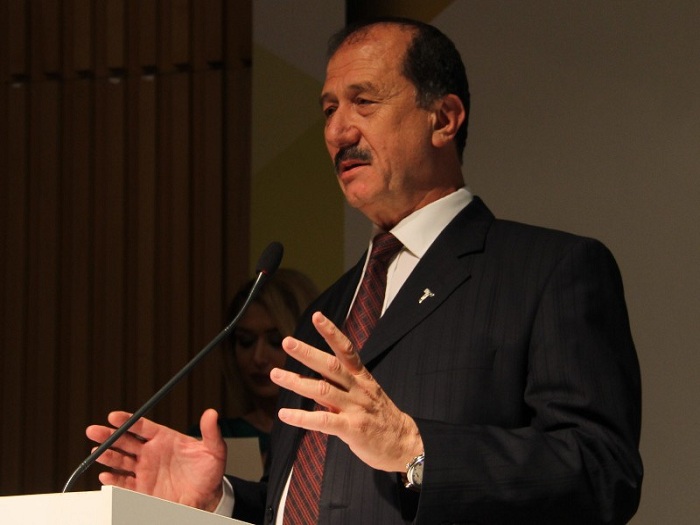How the Turkish stone industry is progressing

Former President of Istanbul Minerals Exporters Association and Chairman of Turkish Pavilion Stone: Although all its income is tax-deductible and lacks other revenues such as oil and gas, the Turkish government is fully supportive of Turkish industry. But it does not seem to be the case in Iran, without the government's support you have no expectation for industry success.
According to Iran's International Stone Exhibition, former Istanbul Minerals Exporters Association Chairman Ali Kahia Oglu and Turkish Pavilion Chairman at Verona Exhibition 2017 interviewed Stone World Magazine. The text of their remarks is as follows:
In the 1980s, when Turkey embarked on its economic reform program, the Turkish government selected a number of economically advantageous sectors to pilot and stimulate the country's economic development, one of which was the stone industry. In 1986, which marks the beginning of Turkey's stone industry development program, it exported only $ 10 million. To address this dilemma by planning and investing in export-able mines, producers were supported by the government in full, and modern quarrying plants were established with extensive incentives to use the mines' output. In Turkey, the consumption of stone is very limited, so the development of mines and factories is only a matter of government interest in terms of exports. Thus, with the full support of the Turkish government, we were able to export about $ 1 billion in about fifteen years, and about $ 2 billion in 20 years. Turkey's exports now amount to two to four billion dollars. However, you should bear in mind that the Turkish private sector has worked closely with the government and played a very active role in this program. We have been focusing on the progress of the work from the beginning until now, and are adjusting the program accordingly.
How the Turkish government supports the stone industry
The Turkish government attaches great importance to exports and does everything necessary to stabilize and expand export markets. For example, we participate in many important exhibitions around the world, and we participate actively in these exhibitions as one of the most important marketing practices in the program. Attending these exhibitions is crucial for the Turkish stone industry. Of course, the Turkish government is also responsible for up to seventy-five percent of the expenses for exhibitions, booths, shipping and return costs, round-trip costs, hotel and lodging in the destination country and for exhibitions Of lesser importance are about 50 percent of the fair paid to exhibitors. In addition to what has been said to require the creation of a special office, warehouse, shorum and other potential programs to target markets, much of it is provided by the Turkish government. In Turkey, we have strong rules and guidelines for protecting the industry, and these are not limited to specific industries or government-based, but include all industries that have the capability and potential for exchange for the country.
Export of Turkish Copper Stone to China
About $ 1 billion is exported to China, all of which includes exports of Turkish mining blocks. We do the same to other countries. We are subject to market, taste and customer opinion. We should not forget that we cannot restrict ourselves to a particular production or product because the existence of Turkey's mines and stone industry is export-dependent.
Advice for Iranian stone industry
It is essential that we do not reinvent the wheel, that the methods of industrial development with an export-oriented approach to the world are well-known and codified methods and that we should use the experience of others. Iran has very good mines and also Iranian quarries have good facilities. I have spoken to many people in Iran so far, despite the fact that the Turkish government, despite all its income is tax-free and lacking other revenues such as oil and gas, actually fully supports the Turkish industry. It seems that this is not the case in Iran, without the support of the government you have no expectation for the success of the industry. To implement a development plan for the stone industry, you first need a strong consultant to study case-by-case the potentials and potentials of Iran's mineral and industrial exports around the world. Special plans should also be developed for mines, factories, or areas that have specific characteristics. Export development does not need to be publicly supported by all government miners or industrial centers as this is not feasible, but the support program should only be limited to mines and factories that are covered by the planned program. For example, if there are potential travertines in an area, this potential should be strengthened and integrated. Or, if another industrial area has the potential for specific granites, export onyxes and exportable marbles, the relevant mines should be identified and protected. On the other hand, in the stone industry, there is a need for talent to be identified in each area and ways to enhance and aggregate these capabilities to be planned by the consultant and to be fully monitored once completed.










